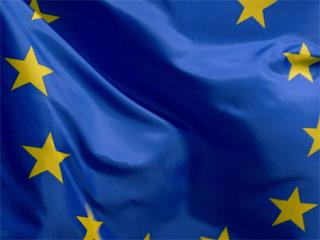Jean-Claude Trichet, the head of the European Central Bank, backed the Dutchman’s vision of a European finance ministry, which implies an even larger European central budget and more decisions on spending and taxation taken in ‘Brussels’ rather than in national capitals. But isn’t it a bit simple minded to think that if Europe was just equipped with a finance ministry to tax citizens directly and the facility to issue Eurozone bond that this would be the structural solution?
In his column in the Financial Times (June 21) Gideon Rachman called it a ‘misdiagnosis’! ‘The crisis is not an institutional problem’, he wrote, ‘the real problem is political and cultural’. He points out what is going on in the EU, especially in the Eurozone countries. Greek, Irish, Spanish and Portuguese people were told that the Euro was the way to equal the prosperity of northern EU countries. But now they are confronted with losing jobs, decreasing income and cutting pensions. The German public is increasingly Eurosceptical and dreams of the return of the beloved lost D-Mark. Anti-European political parties are on the rise in France, Denmark, The Netherlands and Finland. The relations between peoples in the EU are cracking under the strain of the crisis. In Greece demonstrators wave EU flags with swastika’s super imposed upon them. In Germany and The Netherlands the euro crisis has made it permissible that politicians and leading newspapers denounce profligate and corrupt southern Europeans. Some EU governments are talking about closing their borders again to stop the stream of refugees that are entering the Schengen area via badly controlled EU borders.
Another point is that the politics of transfer money from rich to poor regions always seems to be tricky, even within established nation states. Think of strains between northern and southern Italy, between Flanders and Wallonia in Belgium and not to forget between the two united Germanys. In a newly created Eurozone of 17 nations with very different histories, cultures and levels of economic development ignoring this and trying to press ahead with a deeper political union would cause a dangerous backlash in the future. To argue that such a deeper political union is the solution is like recommending that ’a man with alcohol poisoning should treat himself with a bottle of vodka’, Rachman wrote. He goes even further and stated that the origins of the current crisis lie in the dream of political union in Europe: ‘for the true believer, the single currency union was always just a means to that greater end’. But if political union is not the answer to Europe’s problems, what is?
It looks as though some of the EU’s top politicians don’t have the slightest idea of what is going on in the streets of not only Athens and Madrid, but also in London and Amsterdam. At a time of unprecedented austerity, with Europe’s governments slashing spending, it might be smart for EU leaders to keep quiet. But one of the EU’s top officials, the Belgian Herman van Rompuy, president of the Council of the EU government leaders, did the opposite. He handed out to his 27 bosses a glossy brochure about his new office: a brand new €240 million super high-tech modern building, which because of its distinctive womblike shape has already been nicknamed in Brussels the ‘EU-uterus’. The reaction in the Council was not universally positive. ‘It is immensely frustrating to see this brochure’, Britain’s Prime Minister David Cameron told the media, ‘ and you do wonder whether these EU institutions actually get what every country, what every citizen in the EU is having to go through as we cut budgets and try to make our finances add up’.
May be it is the moment to focus on finding the right answer to the existential question: does the EU exist for its citizens or are the citizens there for the highly overpaid, happy few in Brussels?
The end of the European dream?
How to solve the Eurozone debt crisis? Nout Wellink, the Dutch central bank governor, wants a European finance ministry. That could be an important step in the right direction, he thinks.


It looks as though some of the EU’s top politicians don’t have the slightest idea of what is going on in the streets of not only Athens and Madrid, but also in London and Amsterdam. At a time of unprecedented austerity, with Europe’s governments slashing spending, it might be smart for EU leaders to keep quiet.





